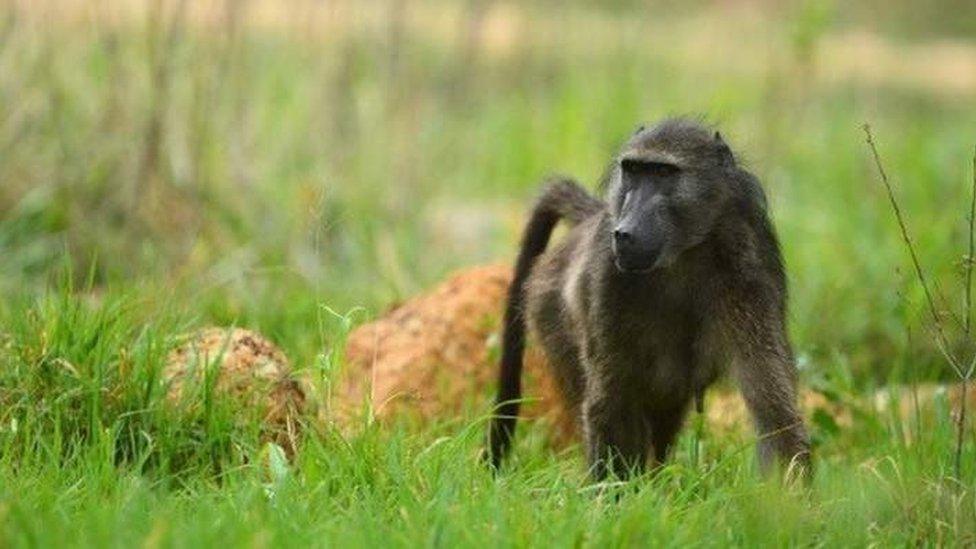Swansea Uni researchers spy on Cape Town's raiding baboons
- Published
Bold baboons have been taking food "directly off people"
Scientists from Swansea University are part of a team attempting to understand the tactics of "raiding" baboons in South Africa.
The animals have become a daily challenge in Cape Town by entering properties in search of food.
While measures are in place to keep them away from urban areas, some male baboons are still getting in and the team want to know how.
They have developed bespoke GPS collars allowing them to track their movements.
Prof Justin O'Riain from the University of Cape Town has been studying baboons in the region for over 10 years.
"The baboons enter properties to raid in gardens and bins, but also enter homes and sometimes take food directly from people," he said.
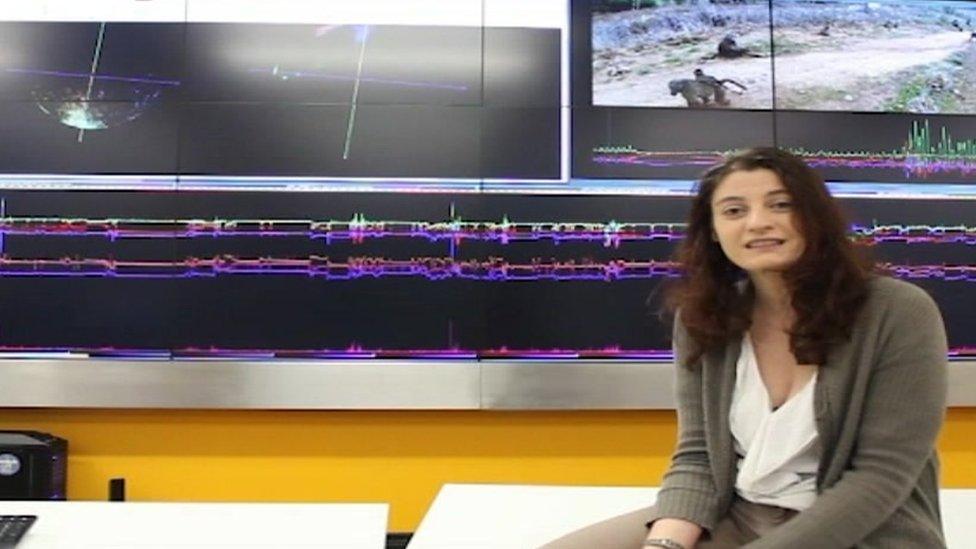
Baboon raids 'fast and intense' says researcher Gaelle Fehlmann
Swansea University researcher Gaelle Fehlmann carried out the fieldwork in South Africa.
She said raiding events are "so fast and intense" that they were unable to keep up with the baboons in urban areas due to high walls and security fences.
"We had to find another method to document the very special techniques baboons were adopting when raiding," she said.
The team from Swansea designed and built bespoke collars for the baboons that would allow them to precisely track their movements. Ten collars were deployed and they showed exactly what the baboons were doing over 252 days.
The team is now able to recognise more than 90% of baboon behaviours without even seeing the baboons.
The next step is to use the technology to uncover the secrets of the baboons' raiding tactics.
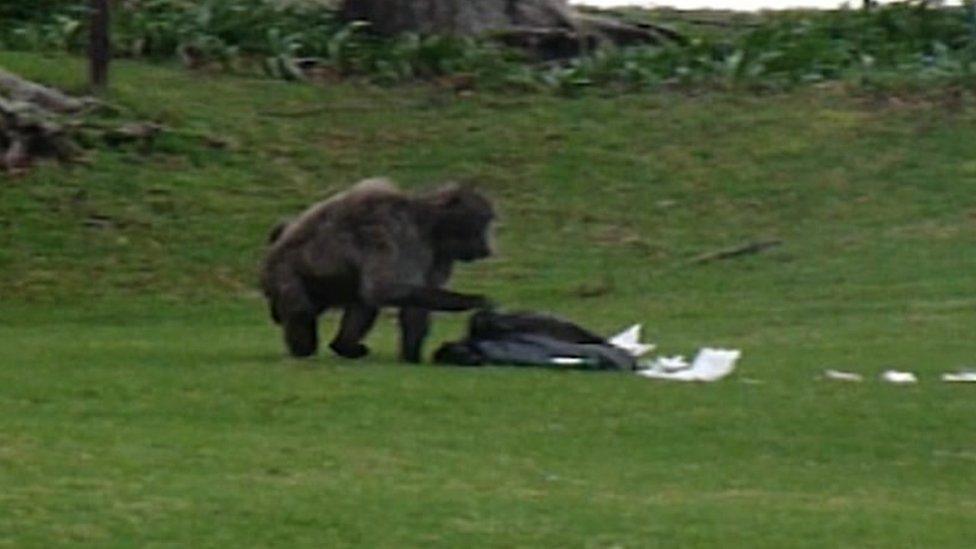
Bin and gone - baboon snatches a Cape Town refuse sack
- Published5 April 2016
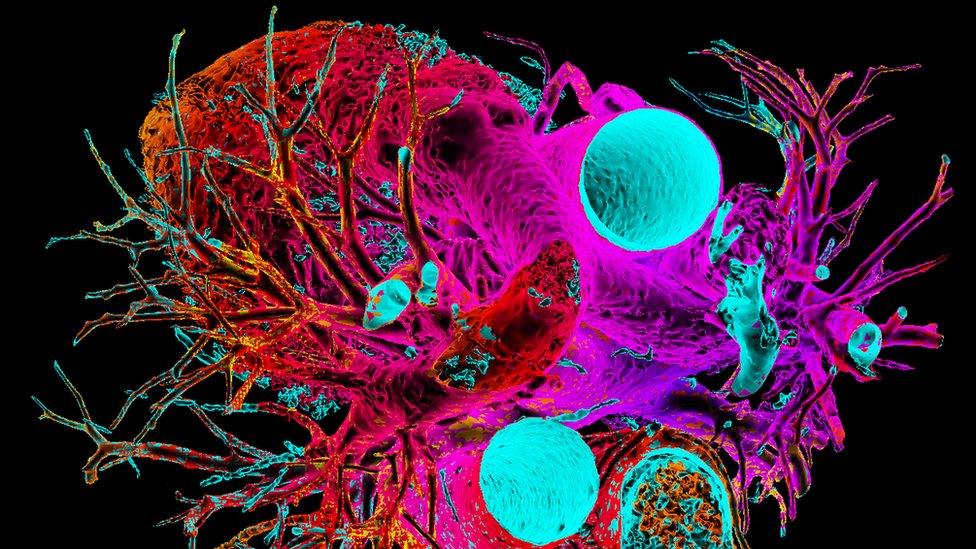
- Published20 April 2016
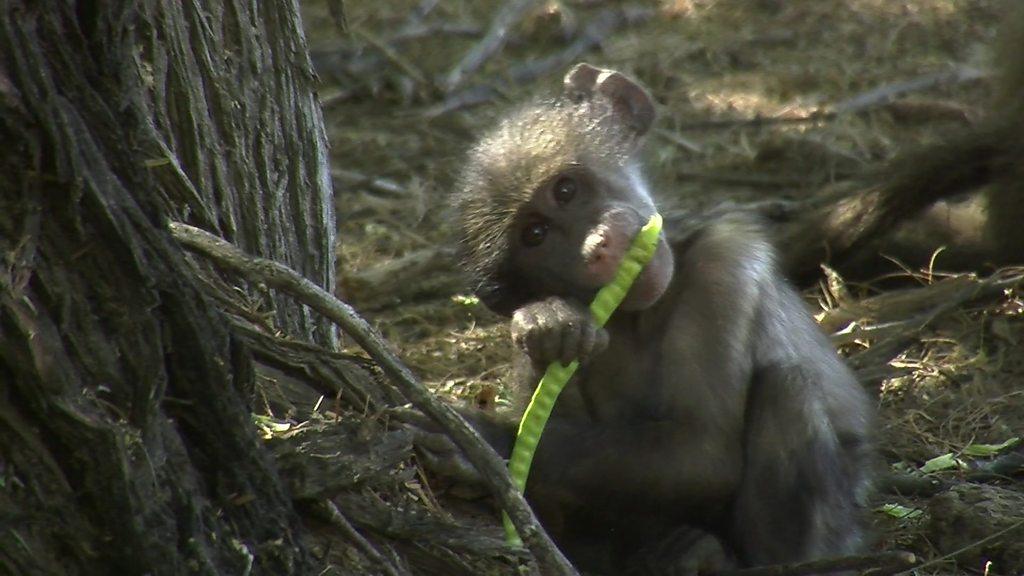
- Published1 October 2015
